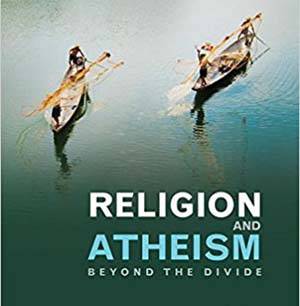
This article is a preview from the Summer 2017 edition of New Humanist. You can find out more and subscribe here.
To Be a Machine (Granta) by Mark O’Connell
Would you pay to freeze your head upon death? Do you long to free your mind from the “meat” that hosts it? Is ageing a disease? And what would you tell your son if he was saving himself for a “sexbot”? It’s fair to assume that you’ve never pondered such things. After all, life’s too short, as any proponent of transhumanism will tell you. But after digesting Mark O’Connell’s adventure amongst its adherents, such questions will overwhelm what a biohacker might call your “wetware”, or what the unenlightened might call the brain. To Be A Machine is a portrait of a movement that believes biology is our keeper, death our great disgrace and technology our redeemer; a “liberation movement”, O’Connell calls it, “predicated on the conviction that we can and should use technology to control the future evolution of our species”. Like a painterly photo of war, it’s a beautiful picture of a dazzling, dangerous thing.
Transhumanists are, we learn, an “overwhelmingly male” bunch. But they are nonetheless diverse. Here we encounter, amongst others, those who yearn to upload the mind; the entrepreneur whose company will cryonically suspend your corpse (or head, for a lesser fee); the “grinders” who seek to augment their bodies through tech; the man holding out for sexbots (because, he says, “a real girl could cheat on you, sleep around. You could get an STD. You could maybe even die”). In sum, it’s a portrait of Silicon Valley on steroids and (mainly) men in pursuit of enhancement. Freud would have had a field day, as, indeed, did O’Connell.
At one point we find the writer aboard the coffin-shaped “Immortality Bus” of then US presidential wannabe Zoltan Istvan, who wants to live for ever and then some. With Istvan’s eerie sidekick, they fear vehicular breakdown and chat about entropy. But the postcard home is perturbing. Like a literary Louis Theroux, O’Connell serves up a compelling, humane portrait of his subject, with a serious side order of raised eyebrows. Istvan’s opinions are shocking. Take, for example, his suggestion that people such as the learning-disabled teenager who once knocked coffee onto his laptop might appreciate being cryonically suspended so as to be given “the prospect of a normal life in the future”.
This view frames the boy, O’Connell observes, as a “broken machine” and seems “a consequence of transhumanism’s extreme instrumentalism”. It’s certainly worth reflecting on the potential endpoint of such a perspective that – as the author elsewhere suggests – seems to regard “human beings [as] devices” with it being “our duty and our destiny to become better versions” of them. What fate, one wonders, could one day await those mere mortals who defy their duty to upgrade? If we fail to be fixable, might we in turn become disposable? Transhumanism, at worst, seems no “live and let live” thing, but a movement that wants to meddle.
Although To Be a Machine prompts us to ponder such things, and whilst its author records clear discomfort with much that he encounters, it is more poetic than polemic, and all the more powerful for it. Its clout is compounded by the fact that O’Connell is undeniably human; he agrees our existence is “suboptimal”, gets awkwardly hugged by a robot (“Peppa”, it is told, “this man would like a hug”), expresses doubt, and travels not on his high horse but by Uber. He also shares tender mammal moments spent with his wife and young son, who asks, “Do mamas and dadas really get old and die?”
Beautifully put, and reassuring too, are his reflections on the paradoxes and ancient echoes found within trans-humanism. As with the story of the fall and original sin, he suggests, it contains that most eternal of desires: that we “might be redeemed of our nature”. Perhaps the whole thing is not so new after all. And all the while, life – and death – goes on. “At time of writing,” O’Connell reports, “we are all of us still going to die.” For now, that may be true, but if you want to live for ever, or upload your mind for posterity, forget transhumanism: you simply need to write a book as good – and human – as this.

